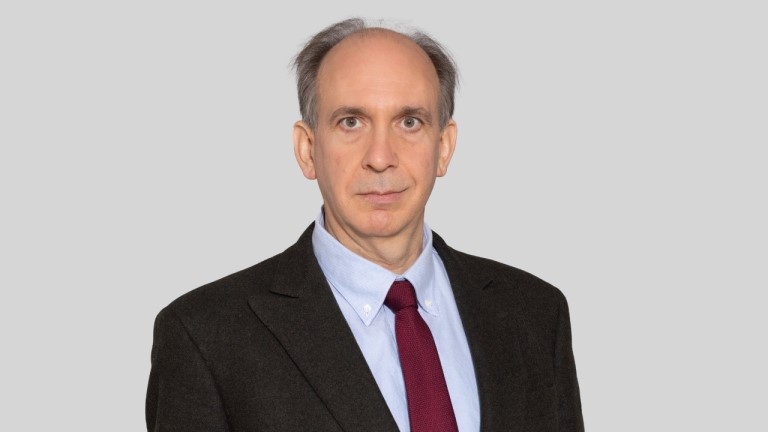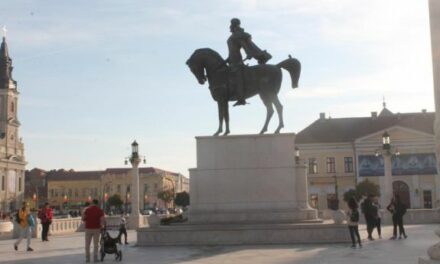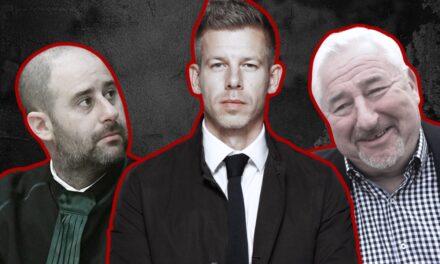Responsible nation-states instead of global omnipotences, because a secure world does not begin with empires, warns American historian Mark Milosch. From the point of view of the small states, it is already clear that although the big power centers act in the name of truth, their real goal is self-interest, the interest of the elite that controls the given empire. Mark Milosch, American lawyer, historian, former head of the Organization for Security and Cooperation in Europe (OSCE), who previously worked as a foreign policy expert for the US Congress, gave an interview to Kossuth Rádió's Vasárnapi Újság program.
- He is preparing for his visit to Hungary. To a country that is often portrayed in a bad light by the Western media. What are your primary expectations before visiting Hungary?
– I visited Budapest several times in the 1990s, and in the last 20 years I have visited there about 10 times. So my image was shaped by my own readings and experiences, much more than the media. And this is very important, because the media creates a kind of separate image of the world, which does not correspond at all to what I saw in Hungary, for example.
- He will have lectures and meetings, including with the students of the Mathias Corvinus Collegium. What do you intend to be your main message, and what will you focus on at meetings, lectures, and when you have the opportunity to talk to young people and, of course, scientists?
– Working for the US government, I previously had the opportunity to visit many countries as the head of a foreign policy institution. What I always observe is that each country creates its own mood and world of feelings. Hungary has a different world of feelings than, say, Norway or France, and I am always interested in this. What the world of the street is like, the world of human relationships, how people relate to each other and to me, what the atmosphere is like in general. In Hungary, I was always struck by a refreshingly normal feeling. I have the same feeling in Poland, which surrounds me. It's like the mood of America 20 or 30 years ago. People still look straight into each other's eyes, they seem to get along well, they mutually receive vitality and energy from each other, they smile. So I also feel that Hungary is a very human place, while in many large cities throughout Northern Europe and North America I somehow feel alienation and coldness. And I really hope that you, Hungarians, have kept the wonderful feeling that I always found in your country.
– Hungary and Poland are members of the European Union. And there are many discussions going on in these countries as well - in Hungary and Poland - about the European Union, about what the relationship with the Union should be like. Do you think that here in the United States they talk about Europe or the European Union, and if it comes up, how is it viewed from here? Like the European Union, or rather the independent countries of Europe.
– I believe that most American people do not have a clear idea of how the European Union works. They know how it is, but they prefer to see the countries behind it. As far as the American government is concerned, depending on its particular goals, it turns to either the European Union as a whole or some of its countries, through which it can better achieve its goals. I don't think that from an American point of view the debate between the EU and the nation state is such a big deal, the Europeans have to work out this balance. And I hope that my country respects this and plays a fair game. It negotiates with the nation-state when it is appropriate, with the union when it is appropriate, but it tries to behave constructively in this system of relations and does not try to impose solutions on it.
– Do you think that Europe is an ally for the United States, or is competition more important between the two?
– Well, I think that rivalry is always there as an element. I agree with the old British saying that "Britain has no allies, it has interests." Every country has its interests, and it is the responsibility of statesmen to come up with solutions that guarantee the future of the people for whom they are responsible as leaders. This should be done in such a way as to give others the opportunity to behave responsibly towards their own people. The association must therefore be understood as a community of people who share some common interest.
Do you think that the geopolitical balance in the world, if it ever existed before, has been completely turned upside down? And is it necessary to rearrange, I mean the global geopolitical order? And where is the role of the United States in this public debate? How to counterbalance?
" I hope it happens." I want to see a world of nation-states led by responsible statesmen who are guided by the good of their country while cooperating with other countries. In which no one exceeds the limits of their responsibility in order to act as a kind of global omnipotent, "protector of the universe ". Unfortunately, we live in a world in which a lot of people want to please Washington, Brussels, Beijing in this role. At the same time, there are some people in Russia who abuse their role and are currently giving it up. And even if we had all the goodwill in the world to move the world from rivals fighting for dominance to a more moderate and responsible system, it would not be easy either, because there are so many global obligations, commitments, and promises. They cancel each other out, so I think that in this situation it is not possible to imagine a kind of ideal world order and aim for it. Rather, we should take things in the right direction modestly and creatively.
– If we stick to the fact that the United States is not waging war against Russia, then do you think that the war in Ukraine, which is a kind of declared war, is true, Russia does not call it that, but a military operation. But does it offer the western allies and powers an opportunity to defeat Russia? Or could this be their actual goal? Or maybe it would be wiser if they took more steps towards a diplomatic solution, paid more attention to peace, or at least a kind of ceasefire?
– We would start by saying that, thank God, we are not at war with Russia, but at the same time, a very unusual situation has developed, which the events of the past 70 years have not even come close to. That is, the United States and its Western European allies send a large amount of weapons and provide serious training to Ukraine. I'm an American Catholic and consider myself a Westerner in every sense, but I think it's a grave mistake to imagine that a great nation like Russia can be effectively eliminated from the global equation. If we want to be patriots and not nationalists or globalists, then we must allow others to be patriots as well. At the same time, it is also true that few countries have caused as much trouble to other countries in the last 250 years as Russia. We have to admit that Russians are also people who have a great history in many ways. We cannot aim to humiliate them, and we certainly cannot allow ourselves to be intimidated by them. Considering the reality, we should envision a future in which every country in Europe and Eurasia achieves what it needs to live in peace in its own territory and according to its own traditions.
Source: hirado.hu
Cover photo: Mark Milosch, American lawyer, historian, former head of the Organization for Security and Cooperation in Europe (OSCE), foreign policy expert for the US Congress. (source: MCC)













